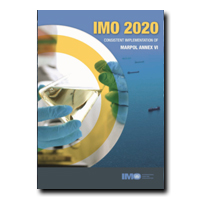제품상세보기
Nautical Publications
This new title will have a major impact worldwide. To support its successful implementation by the international shipping sector, this publication brings together all the instruments and guidance prepared into one document for easy reference, including IMO resolutions and circulars.
In a landmark decision for both the environment and human health, 1 January 2020 has been set as the implementation date for a significant reduction in the sulphur content of the fuel oil used by ships. The decision to implement a global sulphur limit of 0.50% m/m (mass/mass) in 2020 was taken by the International Maritime Organization (IMO), the regulatory authority for international shipping, during its Marine Environment Protection Committee (MEPC), meeting for its 70th session in London in October 2016. Under the new global limit, ships will have to use fuel oil on board with a sulphur content of no more than 0.50% m/m, against the current limit of 3.50%, which has been in effect since 1 January 2012.
Ships can meet the requirement by using low-sulphur compliant fuel oil. An increasing number of ships are also using gas as a fuel as, when ignited, it leads to negligible sulphur oxide emissions. This has been recognised in the development by IMO of the International Code for Ships using Gases and other Low Flashpoint Fuels, the IGF Code (product code I109E), which was adopted in 2015. Another alternative fuel is methanol which is being used on some short sea services. Ships may also meet the SOx emission requirements by using approved equivalent methods, such as exhaust gas cleaning systems or "scrubbers", which "clean" the emissions before they are released into the atmosphere. In this case, the equivalent arrangement must be approved by the ship's Administration (the flag State).





